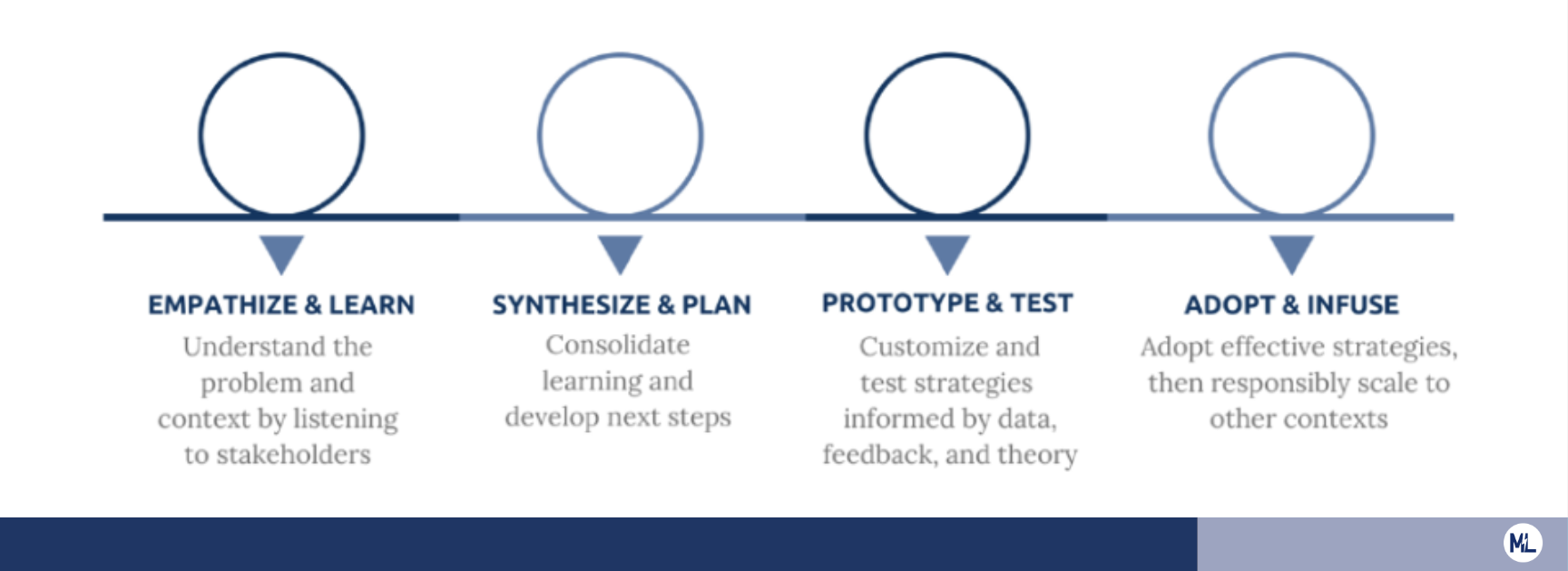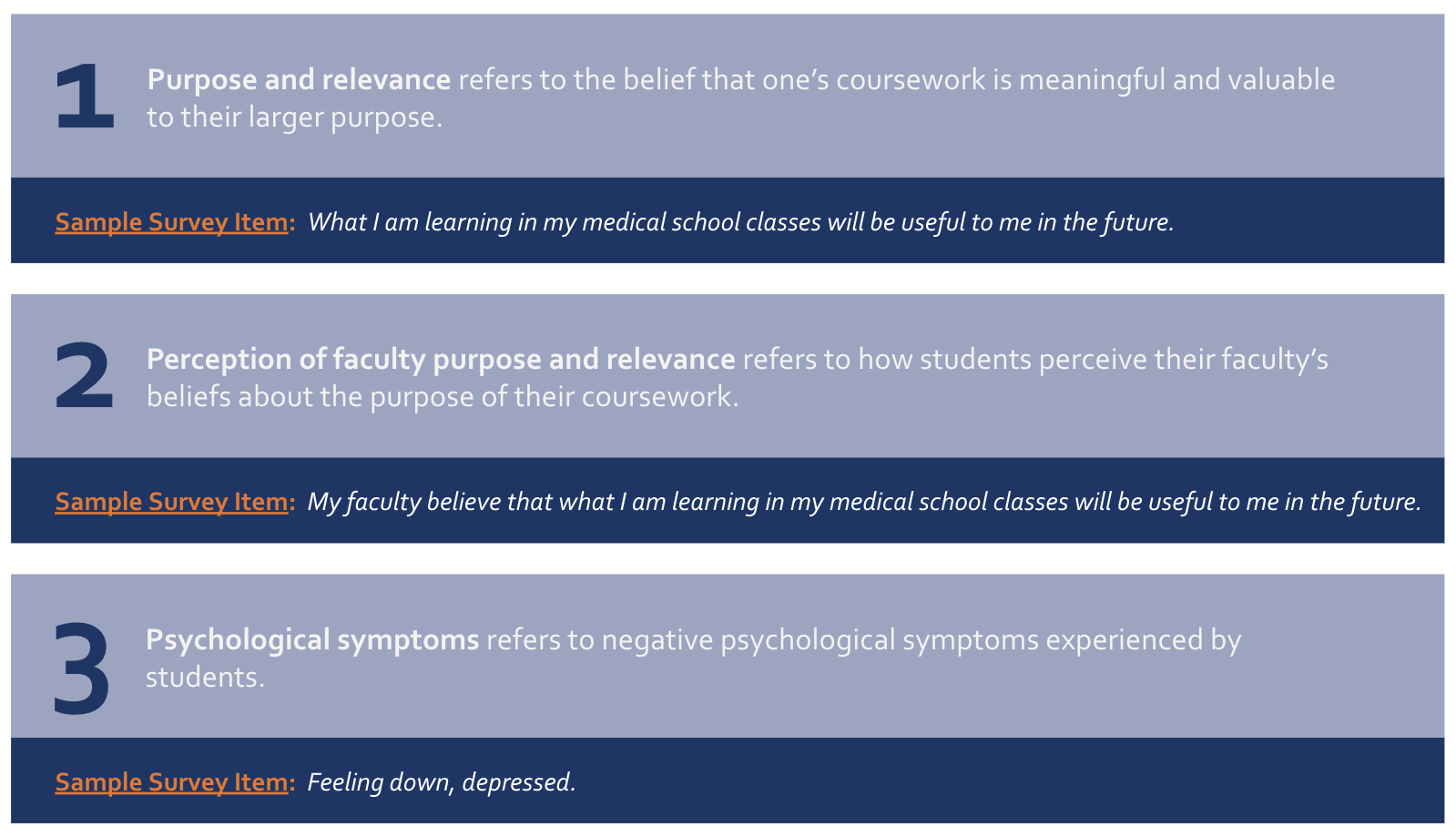
Research Process
Our Research Process
Research across many fields of psychology demonstrates that individuals’ mindsets – their attitudes, beliefs, and perceptions about themselves and the world – play a key role in their ability to fulfill their potential. Psychological theory can help us understand the types of mindsets most likely to be relevant in a given setting, but psychological theory alone is not enough to customize effective solutions for specific individuals and varied contexts.
In order to understand how to best leverage the power of mindsets in a particular setting, Motivate Lab combines psychological theory with best practices in improvement science, design thinking, and experimental methods.
Research Findings
Matriculating medical students across all colleges of osteopathic medicine were asked to complete a mindset survey in the Fall of 2022. From the 7,129 responses we received, Motivate Lab was able to study the relationship of Mindset GPS to student well-being, especially for students from historically marginalized groups.
We focus on the following three well-validated measures:
The following graphs show the relationship between purpose & relevance (the P in Mindset GPS) with student well-being in more detail as an example:
Figure 1
Students who find more purpose and relevance in their coursework show fewer psychological symptoms than students who find less purpose in their courses.
Figure 2
This finding is even stronger for students who are from a historically marginalized group (according to the definition provided by HRSA).
Figure 3
Students who perceive their faculty as finding the material valuable and relevant show fewer psychological symptoms than their peers who perceive their faculty as seeing less value in their courses.
Figure 4
This finding is also stronger for students who are from a historically marginalized group.
Finally, the following key takeaways were also generated from the data obtained from the students who completed the survey:


